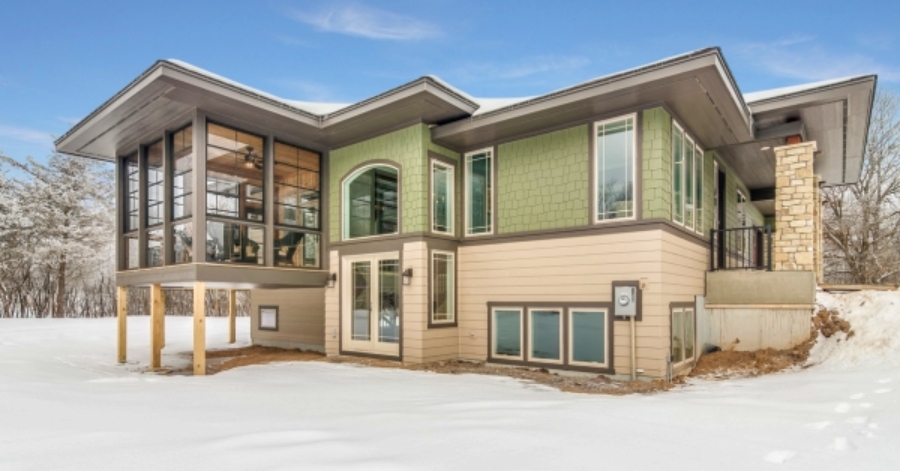Sunrooms are more than just aesthetically pleasing additions to homes. They provide numerous environmental benefits and promote eco-friendly living. Integrating a sunroom into your home can significantly reduce your carbon footprint while enhancing your quality of life. Here’s how sunrooms can help you live more sustainably.
Ways Sunrooms Are Eco-Friendly
A Few Health Benefits
Sunrooms offer a space to bask in natural sunlight, which is essential for vitamin D production. Regular exposure to sunlight can improve mood, boost the immune system, and regulate sleep patterns. These health benefits make sunrooms an eco-friendly option for enhancing well-being without relying on artificial sources of light and heat.
Enhance Natural Lighting
One of the primary eco-friendly aspects of sunrooms is their ability to enhance natural lighting. By maximizing the amount of natural light entering your home, you reduce the need for artificial lighting during the day. This not only conserves energy but also lowers your electricity bills.
Improve Indoor Heating
Sunrooms can improve indoor heating by harnessing solar energy. During colder months, a sunroom acts as a natural heater, capturing and retaining the sun’s warmth. This passive solar heating reduces the need for electric or gas heating, further lowering your energy consumption.
Enjoy Versatility
Sunrooms are versatile spaces that can serve multiple purposes, from being a relaxing lounge area to a productive home office. This versatility means you can avoid the need for additional rooms, which would require more materials and energy to construct and maintain.
Boost Home Value
Adding a sunroom to your home can significantly boost its value. Prospective buyers often view sunrooms as desirable features due to their aesthetic appeal and eco-friendly benefits. This increased home value can make your property more attractive in a competitive real estate market.
The Elements of an Eco-Friendly Sunroom
A Southward-Facing Direction
Positioning your sunroom to face south ensures it receives the maximum amount of sunlight throughout the day. This orientation enhances natural lighting and passive solar heating, making your sunroom more energy-efficient.
Energy-Efficient Windows
Using energy-efficient windows in your sunroom can prevent heat loss during the winter and reduce heat gain during the summer. Look for windows with a low U-factor and a low Solar Heat Gain Coefficient (SHGC) to optimize your sunroom’s thermal performance.
Proper Ventilation
Ensuring proper ventilation in your sunroom is crucial for maintaining indoor air quality and regulating temperature. Install operable windows and vents to allow fresh air to circulate and prevent overheating during warmer months.
Energy-Efficient Window Treatments
Energy-efficient window treatments, such as thermal curtains or cellular shades, can further enhance your sunroom’s energy performance. These treatments help insulate the space, keeping it cooler in the summer and warmer in the winter.
Stone, Concrete, or Tile Floors
Opting for stone, concrete, or tile floors in your sunroom is an eco-friendly choice. These materials have high thermal mass, meaning they can absorb and store heat from the sun. This stored heat is then released slowly, helping to regulate the temperature in your sunroom.
Ways to Make Your Sunroom Even More Eco-Friendly
Use a Rain Catchment System
Installing a rain catchment system is an excellent way to make your sunroom more sustainable. Collecting rainwater can reduce your reliance on municipal water supplies and provide a free source of water for plants or cleaning.
Install a Few Solar Panels
Adding solar panels to your sunroom’s roof can generate renewable energy to power your home. Even a small array of solar panels can significantly reduce your electricity bills and decrease your carbon footprint.
Insulate for Winter
Proper insulation is essential for maintaining a comfortable temperature in your sunroom year-round. Insulate the walls, roof, and floor to prevent heat loss during the winter and reduce the need for supplemental heating.
Final Thoughts
Adding a sunroom to your home is an excellent way to embrace eco-friendly living. Sunrooms enhance natural lighting, improve indoor heating, offer versatile spaces, and increase home value, providing numerous environmental and personal benefits. By incorporating features like southward-facing orientation, energy-efficient windows, proper ventilation, and eco-friendly flooring materials, you can create a truly sustainable sunroom. Further eco-friendliness can be achieved by implementing rain catchment systems, solar panels, and proper insulation. For more information on sustainable home remodeling, explore additional resources.
